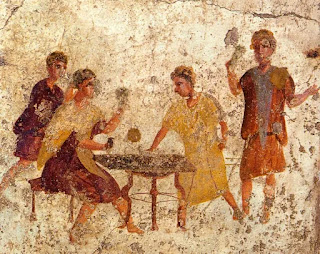Winning arguments with those who are stubborn and dim-witted is a challenging task, one that requires the expertise of the most skilled debaters
Winning arguments with those who are stubborn and dim-witted is a challenging task, one that requires the expertise of the most skilled debaters. Winston Churchill, known for his formidable presence and unyielding convictions, found himself locked in a contentious exchange with a woman at a dinner party. As the two exchanged barbs, the woman exclaimed, 'If I were your wife, I'd poison your coffee.' To which Churchill coolly retorted, 'If I were your husband, I'd drink it.'
Such clever comebacks, however, often elude us in the heat of the moment, only to be remembered later as we reflect on the encounter. The French term for this is 'L'esprit D'escalier' or stairway wit.
Personally, I loathe arguing. Conflict is not something I relish. Nevertheless, I have devoted considerable study to the art of argumentation, recognizing its paramount importance in various aspects of life, from securing a raise to deescalating a dispute, tolerating fools, preserving friendships and much more.
When engaging in an argument, it is crucial to avoid coming on too strong, both emotionally and in terms of confidence. Studies have shown that witnesses who express moderate confidence are considered more credible by juries than those who exhibit low or high confidence. The latter can be perceived as uncertain or egotistical.
One of the most effective strategies for debate is to adhere to a central point and build one's argument around it. As important as it is to remain focused, it is equally crucial to avoid personal attacks and name-calling, as this will only serve to escalate the conflict.
When we are certain of the correctness of our position, it can be tempting to steamroll our opponent with a deluge of evidence and logic. However, this approach can be counter-productive, as it may cause the other person to feel intimidated and unwilling to listen. The most successful arguers are those who remain calm, kind and empathetic, even when dealing with the most ignorant and obtuse of individuals. They ask questions, recognizing that changing someone's mind is a nearly impossible task. By asking questions, the person will change their own mind. Great arguers also often begin by acknowledging areas of agreement and even paying compliments to their opponent in the early stages of the argument.
Kindness is the key to persuasion, not aggression. As HG Wells wrote, 'The first man to raise a fist is the man who's run out of ideas.' Let us strive to be the ones who lead with kindness and understanding, rather than resorting to hostility and hostility.
If you have any queries regarding this article, feel free to leave a comment. Help spread the word by sharing it with your friends, thank you.



Comentarii
Trimiteți un comentariu